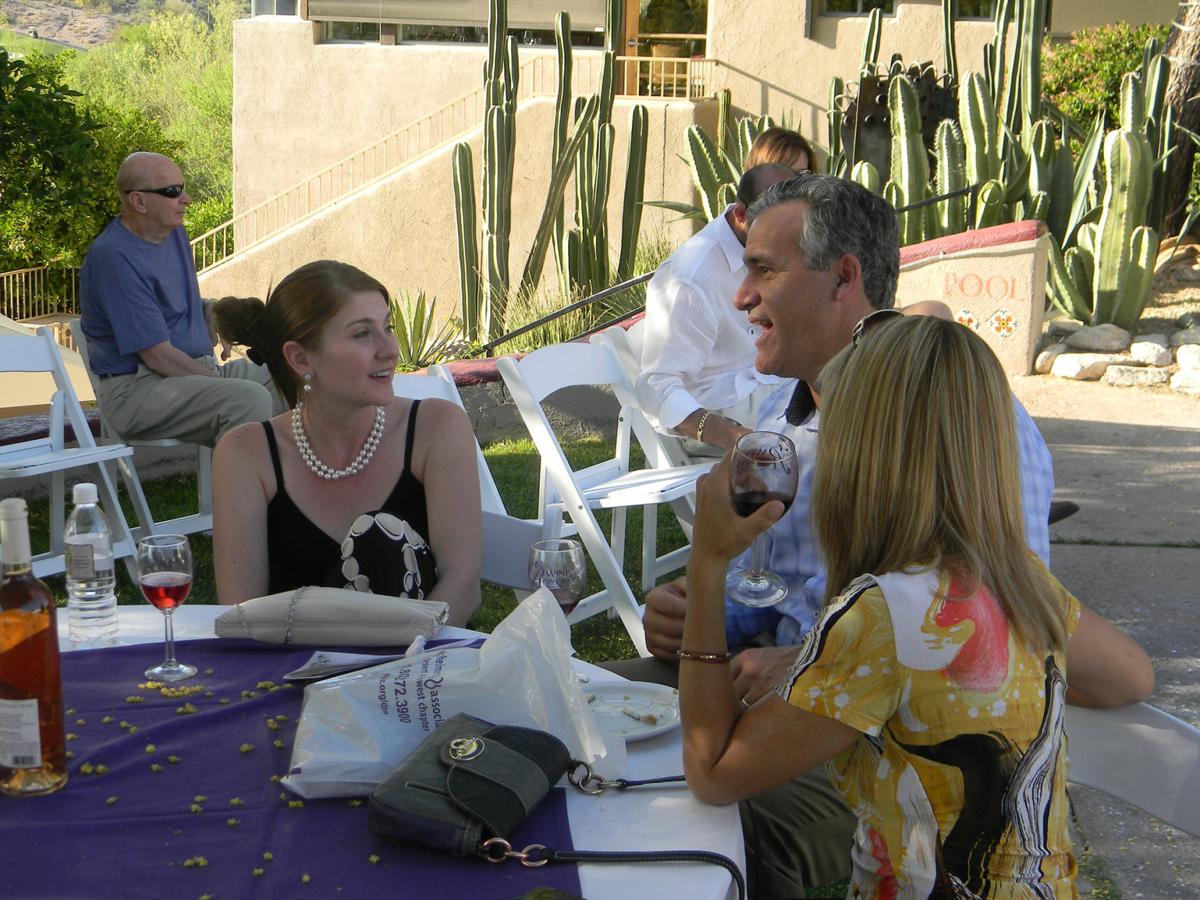On April 10, Jim Wood Jr. will raise a toast to his grandfather, Bill Wood.
He hopes that others with family members or friends impacted by Alzheimer’s disease will do the same at the Sixth Annual Southern Arizona Wine to Remember to benefit the Southern Arizona Region of the Alzheimer’s Association Desert Southwest Chapter.
“It was a blast last year. Everyone had a really good time, and I think everyone was there for the same reason: One way or another they have been affected by this disease,” said Jim, who witnessed the progression of Alzheimer’s disease from Bill’s diagnosis in 1993 until his death in 2000.
“It is helpful and refreshing to talk to other people who have had to care for family members who have passed on or currently have the disease. Last year we had some people there who were newly diagnosed, and it was interesting to talk to them as well.”
Jim Wood Sr. moved his family from Phoenix to Tucson in 1994 in order to help care for Bill. Jim Jr., who was 9 at the time, spent a great deal of time with grandfather.
“I got to see on the front line what a horrible disease this is. ... He went from being an incredibly funny and intelligent individual who knew everything and everyone around town to not knowing his own name or anyone else’s and being a shell of himself,” he said.
Jim also saw the emotional and financial tolls that the disease can take on family, friends and caregivers. He said it was particularly difficult for his grandmother, who was Bill’s primary caregiver until he entered a memory-care facility in his final years.
“I saw the worry the family has to take on and the financial effects of the disease as well. My family was blessed. My grandfather had a successful career with Merrill Lynch and luckily he had the funds to pay for help, but obviously lots of families aren’t so lucky,” said Jim, a financial adviser.
Jim’s desire to assist others dealing with these issues has inspired his volunteerism with the Alzheimer’s Association Desert Southwest Chapter, which is dedicated to empowering and providing support for individuals, families, caregivers and communities affected by dementia in Arizona and southern Nevada.
The chapter provides a wide range of advocacy, services and programs including a 24-hour helpline — 1-800-272-3900 — for information and referral to local resources; an Alzheimer’s resource library; confidential, free family care consultation to assist with guidance on care options, interventions, and planning for the future; and support groups for individuals with early stage dementia and caregivers.
Additionally, education programs promote awareness about Alzheimer’s and related dementias, while early stage programming engages and educates those diagnosed with Alzheimer’s and their families. The nonprofit organization also promotes and funds research.
The need for all services continues to grow, according to Kelly Raach, regional director of the chapter’s Southern Arizona Region.
In Arizona, an estimated 120,000 people age 65 and older were living with Alzheimer’s in 2015; that statistic is expected to increase to 150,000 by 2020, according to facts and figures compiled by the National Alzheimer’s Association.
For every person living with the disease, another four are touched by it as a family members, friends or caregivers.
In 2014 statewide, 314,000 caregivers provided 357 million hours of unpaid care for those living with dementia.
“When people come to us, so many of them say, ‘I felt like I was on an island by myself’ and suddenly they realize, ‘I am not alone.’ We want them to feel like there is a place for them to go and make sure that they have support in place so no one feels like they are on this journey alone,” Raach said.
Raach said fundraisers such as A Wine to Remember generate funds that are vital to local programming while promoting awareness that Alzheimer’s is not a normal part of aging, but a progressive disease of the brain with no cure.
“We are slowly peeling back the layers of stigma associated with the disease. For lots of older adults it was OK to have physical conditions, but having something wrong with their mind or memory wasn’t socially acceptable,” she said.
The Desert Southwest Chapter is also making an effort to ensure that educational information and services are available to the diverse cultural communities in Southern Arizona.
“We are very diverse in Southern Arizona, and lots of cultures believe in caring for aging family members themselves no matter what, while other cultures are more inclined to seek help,” Raach said.
“We are trying to reach out to all different groups and cultures to make sure they can access the services and support they need.”





